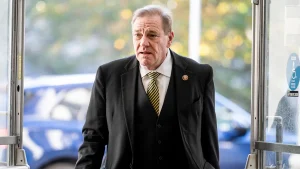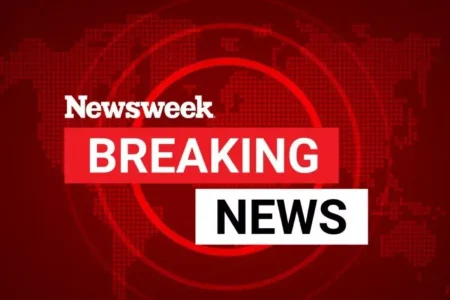Rising Resistance: Planned Protest to Surround the White House Signals Growing Opposition to Trump’s Presidency
A protest movement known as Refuse Fascism is organizing what they call “Surround the White House 2.0,” a demonstration scheduled for December 13 aimed at delivering a symbolic “people’s indictment” against President Donald Trump. The group, founded in 2016, claims Trump has “forfeited any claim to legitimacy” and should be removed from power. This planned demonstration represents just one of many coordinated protests against the administration, highlighting the significant political division that continues to characterize American society. Refuse Fascism’s representatives told Newsweek they intend for their action to serve as “a beacon calling people across the country to nonviolently flood DC,” emphasizing their commitment to peaceful protest methods, including trained volunteer marshals, medics, and legal support teams.
Behind the planned demonstration lies a deep concern about presidential power and its application. Refuse Fascism specifically cites Trump’s deployment of federal troops to various states including Washington D.C., his numerous executive orders on immigration and government funding, and his pardoning of individuals involved in the January 6, 2021 Capitol riots. The organization’s website directly accuses Trump of running a “fascist administration” and violating the U.S. Constitution through his use of the National Guard and immigration enforcement policies. The group expresses particular alarm about what they describe as an escalation of “atrocities” and the potential to “violently crush all space to meaningfully oppose” the administration if Trump remains in power.
This upcoming demonstration follows earlier protests by Refuse Fascism, including a previous march to the White House protesting against what they characterized as “federal takeover of local policing.” That demonstration featured protesters walking approximately 1.5 miles behind banners reading “No fascist takeover of D.C.” and “No military occupation.” The consistency of their messaging reveals an organized movement that has maintained its core opposition to Trump’s governance style since his initial election. Their planned December action appears designed to build upon these earlier efforts, with organizers hoping to inspire “millions surrounding the White House, the Capitol, the Supreme Court, coming back again and again” until their demands are met.
The resistance to Trump’s presidency extends far beyond a single organization, reflecting broader societal concerns about his leadership approach. Various groups have emerged to express opposition through different means. For instance, a group called “No Kings” recently coordinated a boycott of three major retailers—Target, Home Depot, and Amazon—over the Thanksgiving shopping period, encouraging Americans to “withhold their purchasing power” from November 27 through December 1. Their stated reason was to protest against companies they believe are “enabling the Trump administration’s abuses of power.” This economic approach to protest represents one alternative strategy within the broader resistance movement.
Other notable protest organizations include “Vets Say No,” organized by About Face (a movement of post-9/11 veterans) and May Day Strong (a self-described anti-authoritarian movement). These groups held demonstrations across the country on November 11 (Veterans Day) specifically to protest against Immigration and Customs Enforcement (ICE) and what they term “fascism.” Additional protests have targeted symbolic American holidays and occasions, including Memorial Day weekend, Flag Day, and even Trump’s birthday. The international dimension of this resistance was demonstrated by protests during Trump’s visit to Scotland, showing that opposition to his presidency transcends national boundaries.
Looking ahead, the December 13 demonstration will likely represent just one event in an ongoing series of protests against the Trump administration. As his presidency continues, the frequency and intensity of such demonstrations may increase, particularly as the country approaches another election cycle. While Refuse Fascism and other opposition groups maintain their right to peaceful protest, the White House has yet to officially respond to the planned demonstration. This pattern of organized resistance highlights the profound political polarization that continues to define American politics, with passionate advocates on both sides of the divide seeing the future of democratic governance at stake. The persistence of these protest movements suggests that, regardless of their immediate impact, they reflect a significant portion of American society deeply concerned about the direction of the country under its current leadership.













